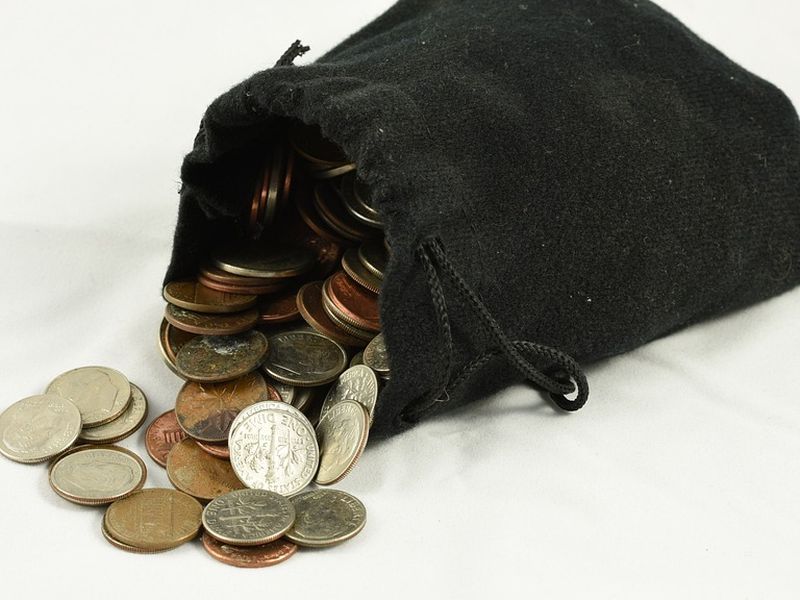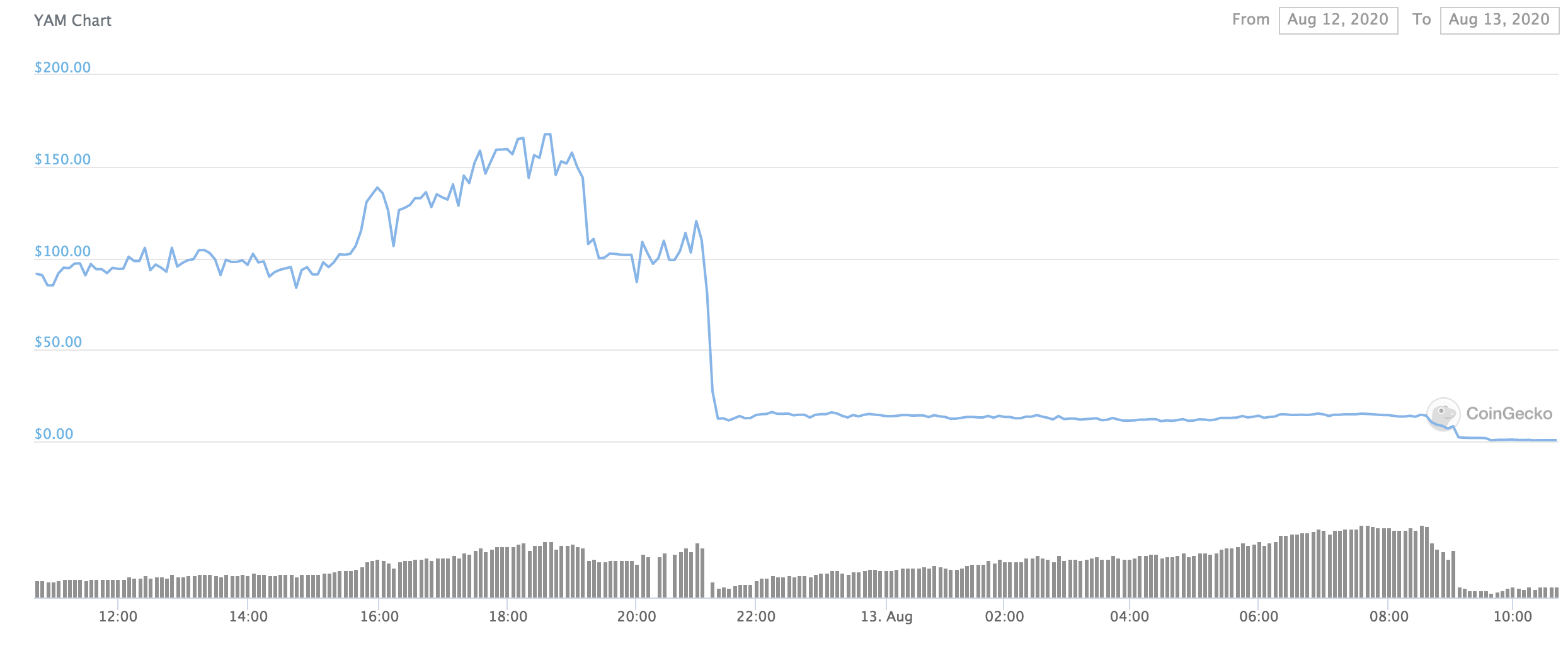The Man Who Forecast a Currency Cold War
Consensus: Distributed
The Man Who Forecast a Currency Cold War
Many of the impacts of COVID-19 are easy to grasp. Every day we see the gutting news: the rising body count, the millions of unemployed, the makeshift morgues in public parks. We grieve for those we have lost. We worry about those who are vulnerable. We’re sick of staying at home. We miss restaurants and pubs.
And then there are the second, third, and fourth-order impacts. These are tougher to spot. In the blizzard of news from the U.S. emergency stimulus package, for example, it was easy to overlook a fairly shocking proposal from the House of Representatives: that the CV-19 relief money (aka the $1,200 checks) could be digitally zapped to Americans, instead of going through traditional banks.
As CoinDesk’s own Michael Casey writes in the forward to The Currency Cold War, “the half-baked proposal was subsequently removed, but it marked a dramatic widening in the Overton window of what is open to discussion. A digital dollar is now on the table.” Meanwhile, in another corner of this emerging conflict, Libra looms large. And China gets ready to launch its central bank digital currency (known as the DCEP).
The upshot? CV-19 could ignite something of a digital currency war.
Good thing someone just wrote a book about that exact possibility. Fintech guru David Birch, a consultant and prolific speaker on the blockchain conference circuit, wrote The Currency Cold War: Cash and Cryptography, Hash Rates and Hegemony, just in time for our global pandemic. He nailed the timing. For years Birch had his own pet theories about a clash of digital currencies. But “that was just me, just some guy talking about it,” he tells me in his British accent, which seems always on the verge of a sly joke. “And who cares, you know?”
Then came Jackson Hole.
In the fall of 2019, at a Jackson Hole event that Birch describes as a “Burning Man for people who run Central Banks,” the Governor of the Bank of England, Mark Carney, said that perhaps it was time for some form of “synthetic hegemonic currency” to deal with what he called the “destabilizing dominance” of the U.S. dollar.
This comment seemed to galvanize Birch. “The Governor of the Bank of England is emphatically not just some guy,” Birch says. He realized that the Currency Cold War was not just his own pet theory – it was imminent. It might already be happening. And it has consequences. Which currency would society choose? Would it be one or many?
It’s crazy. What the fuck are they doing mailing out checks to people?
“Which digital currency?” Birch writes in The Currency Cold War. “Will we really be choosing between the Federal Reserve and Microsoft (between dollar bills and Bill’s dollars)? Between Facebook’s Libra and China’s Digital Currency/Electronic Payment (DCEP) system? Between spendable drawing rights (SDRs) and Kardashian kash?”
Regular readers of CoinDesk, of course, already know that cryptocurrencies could compete with traditional fiat. That idea is not new. Birch takes the next logical step by asking, effectively, what happens when the rubber hits the road? Let’s pretend we get a Facebook Libra or a digital yuan. How would that change the world order? What would that mean to a farmer in Africa, or what would it mean for the United States’ ability to throw around its muscle?
In the book, Birch frames the hypothetical conflict of a digital yuan vs. Facebook Libra as “Red vs. Blue,” in a cheeky nod to the cult videos inspired by Halo. (Birch even asked the publisher if they could call the book “Red vs. Blue,” and they politely told him he was crazy.)
Red vs. Blue? Crypto vs. Fiat? Public vs. Private? On a quarantine-Zoom call a few weeks before appearing at Consensus Distributed on May 11 at 9am ET), Birch explains why the currency cold war matters, how it impacts global “soft power,” and why you might see things like IBM Money…or an Islamic Money that cannot be used to buy alcohol.

CoinDesk: Your book seems incredibly prescient. How does COVID-19 impact a potential digital currency war?
David Birch: I wouldn’t have wished it this way, obviously, but yeah, COVID-19 might have done me a bit of a favor. You must admit that to somebody outside of the U.S., the idea that government stimulus money will arrive in the form of checks being mailed in the post to people seems odd.
This is like having an economic stimulus for the Little House on the Fucking Prairie. It’s crazy. What the fuck are they doing mailing out checks to people? So the idea that the government could provide a stimulus just by sending money directly into people’s wallets — not even into their bank accounts, but directly into their wallets — that’s really interesting. That might well provide an incredible stimulus to digital currency that none of us saw coming.
In the book you consider the possibility of the U.S. dollar losing its dominance. What are the implications?
Birch: I think you need to divide it into two categories. So there’s what does it mean in financial terms? And of course, America’s ability to denominate its own debt translates into a tremendous fiscal advantage. So if America couldn’t do that, it couldn’t just print its way out of problems. This is what General de Gaulle rather famously referred to as America’s “exorbitant privilege.” And that has implications for trade.
But I think what’s more interesting are the non-financial implications.
Such as?
Birch: America’s ability to exercise soft power. I stress that I’m not making a political point. But for example, do you remember a few months ago, America threatened to cut Turkey off? I can’t even remember what the dispute was about…
Who can?! There were 17 crises between now and then! [Editor’s note: This would be the U.S. threatening to cut Turkey from an F-35 stealth fighter jet program.]
Birch: Yeah, a lifetime of crises ago. But the point is that if I’m some country, and America says you have to do something I don’t particularly want to do, I have to do it, because otherwise, I can no longer buy imports and I get cut off from the global financial system. But what if there was something that was a bit like money, but it just wasn’t run by the Americans?
Or let’s say you’re a country in Africa. You sell most of your oil to China, so you decide to price your oil in Yuan. You sell your oil in digital Yuan. The U.S. Treasury wants to sanction you for doing something, what do you care? You don’t use their stupid dollars anymore. None of your money goes through the New York money central banks, so what do you care? There are several countries, I’m sure, that actively would like that to happen.
How could this impact an average person?
Birch: Let’s say you’re a farmer in Africa. And you’re buying tractors and things from China, and you’re buying fertilizer from China, and you’re supplying food to Chinese companies that are building ports and whatever else things companies do.
You’ve got the choice between getting paid in your local currency, which you may not be too happy about, because it may be a little volatile — it may be depreciating, or it may have currency controls attached to it. Or you could get paid in U.S. dollars, except you’re not allowed to have a U.S. dollar bank account. And even if you did have a U.S. dollar bank account, when you decide to send some money to your cousin in Afghanistan, you can’t, because it gets blocked by the U.S. Treasury.
Or maybe you have a wallet on your phone where you can store your Chinese digital currency. Given those choices, I can understand why a great many people, particularly along China’s emerging Belt and Road, I can see why some of those people would make that choice. I’m sure you can, too.
I personally feel that money is so important that it has to be under democratic control.
In the book you talk about “Red vs. Blue,” and I totally got the Halo reference, by the way.
Birch: It was Halo, yeah! [Laughs.] I thought it was hilarious, but no one knew what I was talking about. I’m so old. It fell completely flat. I wanted to call the book “Red vs. Blue,” but my publisher, who knows a lot more about selling books than I do, said, “It’s absolutely meaningless. No one will know what you’re talking about.”
So what does Red vs. Blue mean, outside of Halo?
Birch: It’s the difference between private and public. So if I take Facebucks, which is what I always call them… I think it’s a much better name [than Libra]. How come I know more about marketing than Mark Zuckerberg? I don’t get it.
If I take Facebucks, I take Facebucks because I think other people are going to take Facebucks. That’s how money works. And there could be 2.5 billion people around the world who are perfectly happy to accept Facebucks. Zuckerberg said that his vision was that sending money would be just as easy as sending a photo. Well, if that were true, if that vision was realized, that would be great, right?
I mean, everyone would use that, wouldn’t they? So is that a bad thing? Well, you know, if you run a government and you want to have some control over things, you’d probably think that was a bad thing, right?
I can see it argued either way…
Birch: Now, if I’m the government, actually, I might be okay with that as long as certain criteria are met, like KYC. But I can’t help but feeling… even if Facebook did that, I mean, would you have your salary paid in Facebook money?
Right.
Birch: Or If you get chucked out of Facebook, who’s the ombudsman you call? You see people all the time get banned from Twitter, and they can’t figure out why. What would happen with Facebucks? Like, what happens if you wake up one morning and, all of a sudden, Facebook won’t let you send money to anybody? What do you do about it?

Or would this give Facebook too much “soft power,” a consideration you raise in the book?
Birch: I personally feel that money is so important that it has to be under democratic control. Now, that’s not the same thing as saying that money has to be run by the government, because I don’t think I agree with that. But I do think money should be under democratic control. I’m sure you must get into this argument all the time with the Bitcoin maximalists.
Can you elaborate? Why is democratic control so important?
Birch: Well, why don’t you get one of the Bitcoin guys to write an article which explains to me how you would respond to the COVID-19 pandemic? I mean, I’ve seen them on Twitter, and they’re like, “Well, it just means the people who didn’t save money will go to the wall.” This is teenage. It really is. It’s angry white male West Coast teenage pseudo-libertarianism.
In the book you talk about “very smart money,” which could involve not only cryptography, but biometrics. How do you envision this?
Birch: So smart money is money that has apps, right? Very smart money is money that has coordinated apps that function to the benefit of all of the stakeholders. Here’s an example that I tried to use in the book. Suppose you have digital currency that’s effectively anonymous, right? Like with Z-Cash, it can be either anonymous or non-anonymous. So I can send money to you anonymously. But if I send money to you anonymously, then when you receive the money, there’s an automatic 20% withholding tax which goes to the government to compensate for criminality and money laundering, or that sort of thing.
The libertarians would love that! What’s another example?
Birch: You could imagine money where, if both of us are behaving ourselves, then everything is anonymous. But if one of us does something wrong — like I steal your money and run away with it — then you can unblind the transactions. You can break the glass, basically.
Interesting.
Birch: I’ve always thought that the smart contract layer will be where the real innovation would come from, and I do still believe that. But now I’ve started to think, well, if those smart contracts were kind of coordinated and organized, then you could make money that’s really smart. Not money that just has simple triggers, simple little Apps. What if I introduced an Islamic money? And the Islamic money can never be used buy alcohol, for example? A lot off people would prefer to use that kind of money, right?
Or a parent who gives an allowance to a kid that can’t be used to buy R-rated movies, or whatever. That gets into money-as-censorship, and an Orwellian dark side pretty quickly…
Birch: If the tools are there, people who are much cleverer than me will come up with some amazing applications, I’m sure.
You’re a big proponent of having LOTS of currencies. What’s the benefit of this?
Birch: If you only have one currency, and something goes wrong with it — like inflation — then you’re stuck, right? But if there’s lots of currencies and those currencies are constantly competing to deliver what society wants, if one of them goes away, it doesn’t really matter.
It’s the old argument that goes back to the idea of the IBM dollar. If I want to send you IBM stock, it has to go through all sorts of intermediaries, clearings, settlements, T+3, and everything else, right? But if I send you IBM money, the money goes from me to you, end of story. So it makes for a much cheaper infrastructure.
So instead of having one kind of money and using it to buy different kinds of securities, you’d have lots of different kinds of money. And people say, “Well, that would be really complicated to manage,” but that’s because they’re thinking of doing it themselves. In reality, you wouldn’t be doing it yourself because it’s very smart money. The AI in your phone will take care of it for you. Money that’s designed for devices can be much smarter than money designed for people.
What do you want people to take away from the book? What’s the core idea?
Birch: Three things, really. First of all, to stop thinking about digital currency as some kind of nerd cryptographer/Bitcoin nutter thing. It’s a real thing and it needs to be taken seriously.
Two, to develop a strategy for digital currency. Obviously, my strategy would be for the Bank of England to create a fantastic digital currency. I’m sure Michael [Casey] and other people’s strategies might be for some private companies to create a fantastic digital currency. For other people, it might be for the U.S. to create a fantastic digital currency. I’m not smart enough to know which should be the best strategy, but I’m smart enough to know there should be a strategy.
And the third thing?
That they should pay me enormous sums of money to come and talk about it in conferences, should there ever be conferences again in the rest of my lifetime.
David Birch will be appearing at virtual Consensus Distributed May 11 at 9am.









